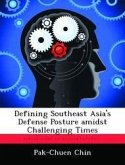It is dangerous to assume that in today's operating environment, a universally accepted definition of what war is, and what war is not, is readily available. While most Soldiers and policy makers claim to know war, "knowing it when they see it" is a precarious and superficial approach. This monograph provides a framework for understanding why a comprehensive definition of war is so difficult for America to maintain, and so necessary in preparing for future conflict. The theories of Carl von Clausewitz are revisited in the context of the definition of war provided by Joint Publication 1 (JP-1), Doctrine of the Armed Forces of the Unites States. This monograph demonstrates the inadequacy of the JP-1 definition and the superficial approach in applying Clausewitzian theory to a poorly structured definition. By analyzing the reason why Clausewitz is so conspicuously present at the beginning of the U.S. Military's capstone doctrinal document, it becomes possible to appreciate the difficulty in incorporating his theory into modern decision making. The monograph utilizes Clausewitzian theory to extract a definition of war that attempts to be at once both comprehensive and comprehendible. Based upon the above, a recommendation is made that the United States military must incorporate a better structure for defining war. Educating both military and civilian leaders ultimately requires an educational process based on a definition anchored in proven theory instead of unproven rhetoric.
Hinweis: Dieser Artikel kann nur an eine deutsche Lieferadresse ausgeliefert werden.
Hinweis: Dieser Artikel kann nur an eine deutsche Lieferadresse ausgeliefert werden.








